Education Workshop
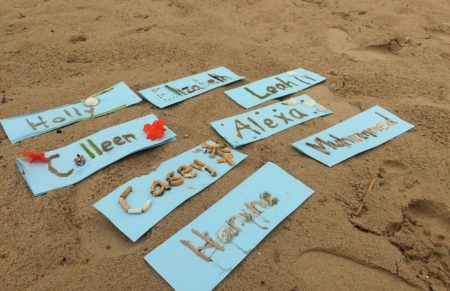
In July the Education Sector of Peace Corps The Gambia (PCTG) held a Training of Trainers (TOT) event at the beautiful Jungle Beach Resort in Sanyang. I did not attend this event, but I received a synopsis and lots of great photos that I want to share. I feel strongly that literacy is a fundamental requirement if Gambians are going to reach their maximum potential. I also have noticed that most Gambians do not read books outside of the school environment, and rarely read for pleasure. Reading is my prefered mode of entertainment, and I have enjoyed fostering the love of reading while I’ve been a PCV.
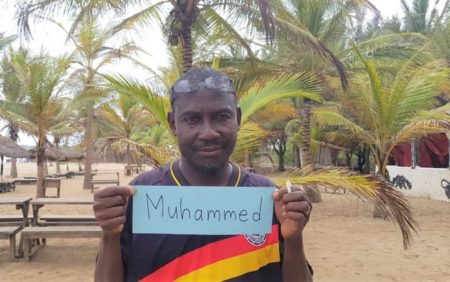
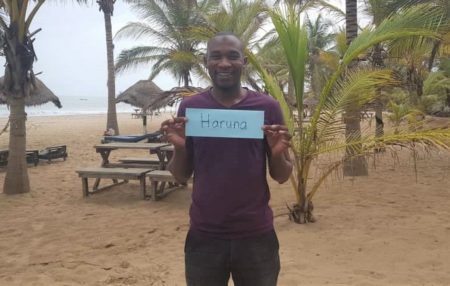
The workshop was facilitated by PC Education Program Manager Muhammed Touray, PC Education Program Assistant Haruna Jallow, and Education PCV Literacy Coordinator Holly Johnson. The five new PCV Literacy Regional Representatives who attended the workshop were Casey Phelan, Colleen Booth, Alexa Harrison, Leah Rattunde, and Elizabeth Anthony. The training focused on encouraging, motivating and inspiring the new Literacy Representatives with a variety of different techniques, methods and activities they could share within the PCV community. Attendees were given information to better understand the different components of literacy. Discussions were held about what areas PCVs may want assistance with, and what initiatives, activities, or games Literacy Representatives can take back to their regions and implement throughout The Gambia.
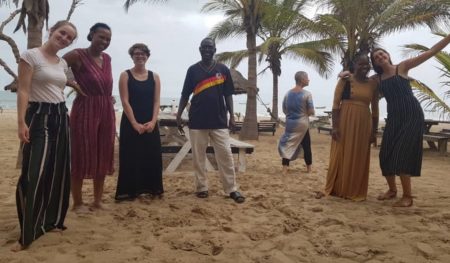
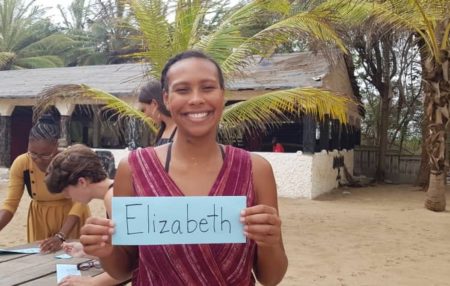
During the training participants had the opportunity to engage in sessions that would help enrich their literacy work when supporting their regions PCVs and Host Country Nationals (HCN). Session topics included: (1)expectations of being a Regional Literacy Representative; (2)understanding what literacy is; (3)describing the literacy wheel; (4)discussions about literacy progress in each region; (5)the PCTG Literacy Initiatives; & (6)implementing literacy within culturally diverse backgrounds.
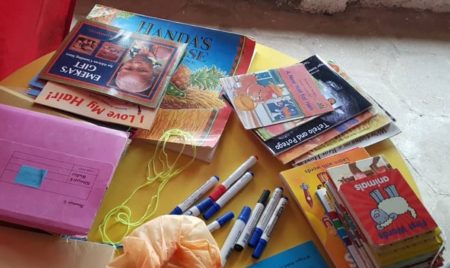
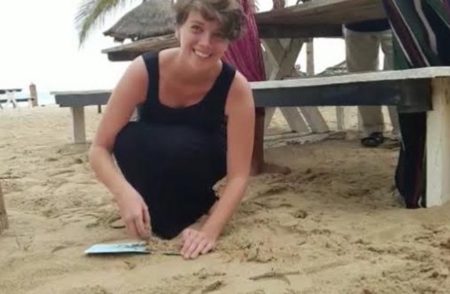
The session schedule included time for team building activities, energizers, brainstorming, information exchanges, and downtime to enjoy each other at the beach. One goal was to help expand our literacy community, and teach different training methods that could be implemented in all regions. By the end of the day, the participants reached a consensus on one activity that will be implemented throughout The Gambia. PCTG Drop Everything And Read (DEAR) Day on August 31. Literacy Representatives will prepare their regions to hold this activity at a volunteer’s site, emphasizing the importance of literacy, and demonstrating how fun reading can be.
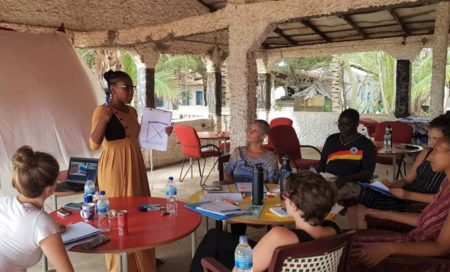
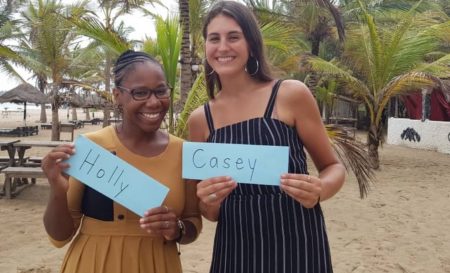
Attendees also shared their own “Passion Presentations” about ideas and literacy work they are currently implementing at their sites.
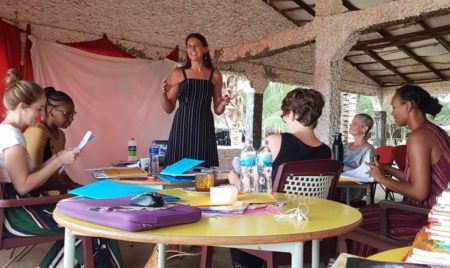
Casey gave examples of literacy warm-ups and decoding strategies. An example of warm-up activity would be to have a student start a story with “well I never”. The student would continue the story by sharing facts and experiences with the class about something never shared before. The teacher could then instruct the class they have two minutes to come up with a fact, story or experience that the class does not know about them. A decoding activity can be making name cards with materials from the environment, alphabet rock gardens, or a display of letters of the alphabet using natural or recycled materials such as: sticks, leaves, rocks, dried beans, seashells, bottle caps, buttons, cardboard or plastic.
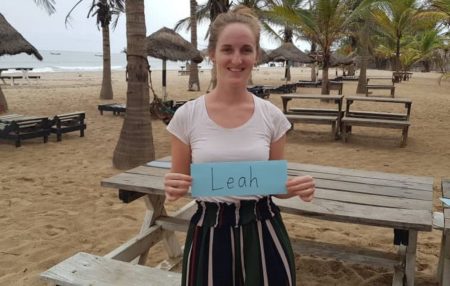
Leah described how to implement dialogue journals, which are different from just writing down your own thoughts in a journal. A dialogue journal is sharing your experiences or thoughts with someone else in a sustained way. It is basically a continuous written conversation between two people. It builds a relationship between the two writers, and can help students think deeply about topics, or consider another perspective. Leah explained about the dialogue journal she had with her sister. She noticed her sister had many writing errors that needed to be addressed, as time went on, her sister began to use more detailed sentences with the correct punctuation marks. This activity encouraged her sister to continually to improve her writing style.
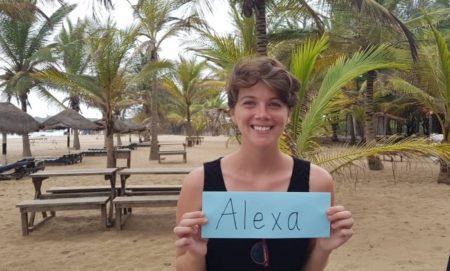
Alexa spoke about the “Daily 5” which is using teaching centers to promote literacy. The five stations are: (1)read to self; (2)read to a partner; (3)listen to someone read; (4)work on writing skills – penmanship and sentence structure; (5)word work – building your vocabulary. Students are given the opportunity to choose whatever literacy station they would like to focus on that day. There is a lot of teacher directed learning through memorization here, and giving students the freedom to make their own decisions can foster critical thinking skills.
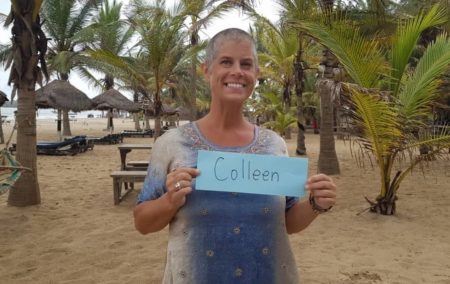
Collen talked about how games can become literacy tools. Bingo can be played with sight words instead of numbers. Sight words are words that children are encouraged to memorize as a whole by sight. Make the Bingo cards with sight words on them, and then draw the different words from the jar and see who fills up the card first. Adapt the card game ‘Go Fish’ by writing sight words on index cards, dealing out to the players, and they take turns asking each other if the have a certain word in their hand. Learning the names of different body parts can be taught by having sticky notes with the body part words on them, and the students then place the sticky note on the correct body part. Learning should be a fun activity and games are a great way to do that.
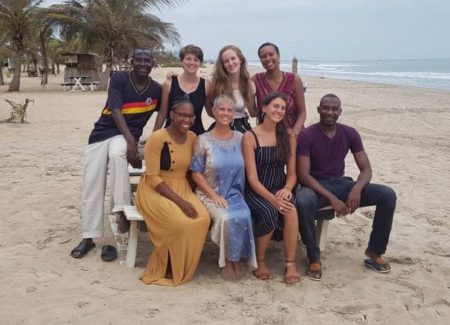
By the end of TOT, the Regional Literacy Representatives felt more prepared and ready to serve in their regions. Being able to come together in a small group in a beautiful and relaxing setting, fostered a sense of camaraderie and purpose for their new roles during the coming year. An evaluation about the training was given to each participant, and the feedback has been well-received, and will be implemented to make the next training better.
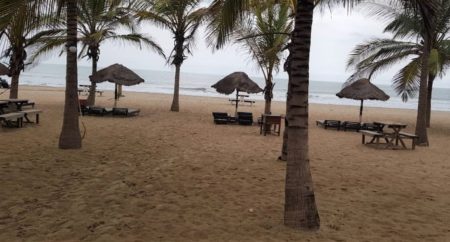
I want to particularly thank Haruna Jallow and Casey Phelan for sharing the photos and details about this valuable training that addresses literacy in The Gambia. It doesn’t matter what sector a PCV is from – Education or Agriculture or Health – by helping to foster reading and comprehend, better opportunities will become available for all Gambians in this developing West African nation.